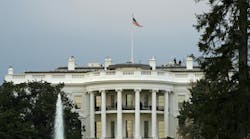US lawmakers wanting the White House to turn up the political heat on Iran this year may seek to tighten existing sanction laws designed to discourage foreign investment in Tehran's oil and gas sector.
"Finding ways to restrict the increasing wave of foreign investment into Iran and Libya must be an integral part of the same effort to suppress terrorist financing," said Rep. Ileana Ros-Lehtinen (R-Fla.), chair of the House Subcommittee on the Middle East and Central Asia. Her remarks were made at a June 25 oversight hearing on implementation of the Iran-Libya Sanctions Act, first passed by Congress in August 1996 and reauthorized with some revisions in August 2001.
"While we are gratified by recent statements from the EU [European Union] countries on Iran's nuclear objectives, mere rhetoric while negotiating further investment deals with Iran, are not sufficient grounds, do not justify, lack of ILSA implementation," she said.
A congressional aide said that the chairwoman wants to tighten the law, which now gives President George W. Bush the authority to waive or exempt countries or companies from various financial sanctions. Exactly how the law may be tightened is now being studied, said those familiar with the discussions.
ILSA today
ILSA has not succeeded in stopping petroleum sector investment, although some observers and analysts do credit the law with slowing development, especially when the law was first passed, said a US Department of State official who spoke at the hearing.
The current law gives the White House wide discretion on when and how sanctions should be imposed. And as yet, no country has been sanctioned. In May 1998, then-Sec. of State Madeline Albright announced that the White House decided to waive sanctions that could have been imposed on a French-Russian-Malaysian consortium developing the massive South Pars gas field (OGJ, May 25, 1998, p. 18).
While the secretary found that the investment did constitute "sanctionable activity" under the 1996 statute, policymakers came to the conclusion that imposing sanctions would not have stopped the deal from taking place, noted Anna Borg, DOS deputy assistant secretary of the Bureau of Economic and Business Affairs. Many of the US's staunchest allies in Europe and Asia also argue the statute violates international law and is unenforceable.
Under the terms of the reauthorizing legislation, DOS will be reporting to Congress between August and February 2004 on how effective ILSA has been. The law, which is designed to punish non-US oil companies that invest $20 million in either country, is a particular source of rancor for key US allies as well as multinational and state-owned oil companies. Both US and non-US companies hoped recent G-8 talks would be a platform on which the US government would look to repair diplomatic relations strained from the Iraq conflict by updating sanctions policies in Iran and Libya (OGJ Online, May 30, 2003).
It remains unclear what the White House plans to do in the months ahead. Some House leaders are convinced that economic sanctions are a key way to loosen the grip of Iran's conservative clerics who control key parts of the government. But tightening the law could be an uphill, although not an impossible, task given the vicarious nature of geopolitics.
In the Senate, there is far less support for economic sanctions than the House, and a tougher ILSA law might easily languish. Still, it's always dangerous to say something can never happen, oil lobbyists say. There is always a chance some politically expedient deal could be struck. Decoupling Libya from a new sanctions law is something being informally eyed, for example. Tripoli continues to seek a more favorable position with Washington, and there is hope by some companies with investments there that a resolution over the 1988 PanAm Lockerbie bombing might help jumpstart the political process, maybe this year.
The future
The White House has quietly told some key lawmakers it would rather Congress leave ILSA alone, US government sources said. Many of the countries that could be targeted under ILSA are needed to win crucial international consensus on the administration's evolving Iraq reconstruction policy. But both opponents and proponents of
ILSA acknowledge that the issue is likely to remain a front-burner issue for the foreseeable future.
"Sooner than later the White House will have to decide if ILSA helps or hurts its own policy objectives in the Middle East region," an oil lobbyist following the issue said.
Some of the US's most important allies appear willing to wait, but for how long is still a key question.
Japan backs down
The Japanese government, taking heed of US concerns about nuclear proliferation, said it would consider delaying an agreement to help Iran develop Azadegan oil field, thought to contain estimated reserves of 24-40 billion bbl of oil.
"Suspicion about Iran's nuclear development is not an issue affecting only our country," Yasuo Fukuda, Japan's chief cabinet secretary, told reporters in Tokyo. "We can't sign the crude oil accord ignoring it."
DOS said June 30 it opposed the investment after it became known that Japan's state-controlled Inpex Corp., Japan Petroleum Exploration Co., and publicly traded trading company Tomen were in final negotiations with Iran to invest at least $2 billion to produce 300,000 b/d of oil from Azadegan field over a 20-year period.
"This would be a particularly unfortunate time to go forward with major new oil and gas deals" in Iran, DOS spokesman Richard Boucher said in a statement on the department's web site, responding to a question whether the US asked Japan not to conclude the Azadegan field agreement.
The US is opposed to such investments in Iran "at any time," Boucher said, but especially now "given recent revelations about Iran's nuclear programs and efforts being made through the International Atomic Energy Agency to deal with the threat Iran poses."
